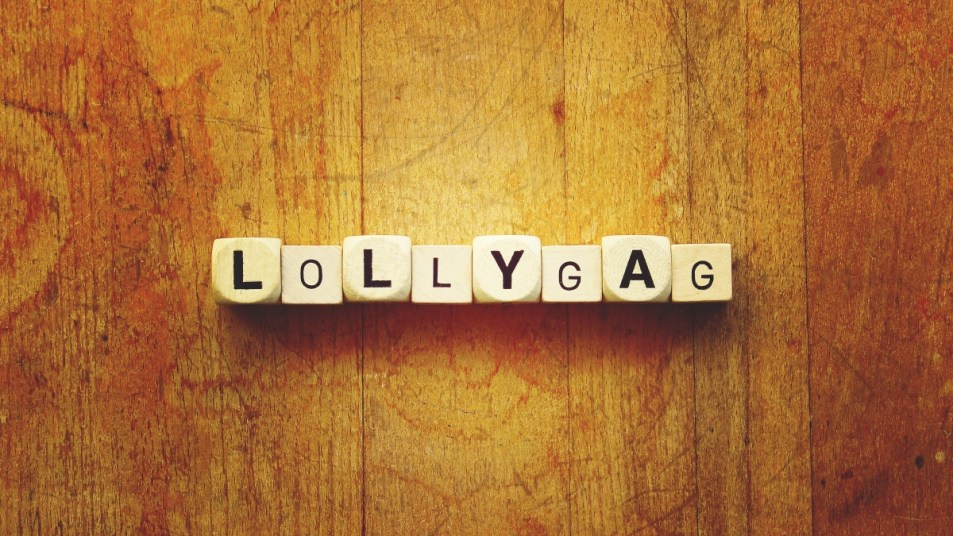The Wacky Stories Behind 5 of the Weirdest Words in the English Language
From whipper-snapper to berserk.

Have you ever wondered where all the weird words in English come from? For example, when someone refers to the presence of small children as “hearing the pitter-patter of little feet” — where on earth did they get “pitter-patter” from? All languages borrow words and phrases from one another, and English is no exception; as it lives and evolves, words change until sometimes we can no longer remember their origins. Fortunately, etymology (or the study of word origins) helps preserve the historical development and initial meanings of words. So, if you’re curious about where some of the strangest terms in the English language came from, check out five of our favorite word origins below.
Berserk
How did “berserk” come to mean “out of control, extremely excited, or crazy?” The word is an alternative spelling of the Old Norse word, “berserkr,” which was defined as a “raging warrior of superhuman strength” in 1822. Researchers believe “berserkr” came from the Old Norse “ber” which means “bear,” and “serkr” which means “shirt.” In other words, it literally means “a warrior clothed in bearskin.” So, the next time you get angry and threaten to “go berserk,” calm down and ask yourself whether Ancient Scandinavians (Old Norse speakers) would agree that you’re appropriately formidable.
Hullabaloo
Used to describe a commotion or crazy event, “hullabaloo” is an onomatopoeia — a word that sounds like the thing it’s describing. Interestingly, “hullabaloo” went through a lot of spelling variations throughout history. In 1762, for example, the word was commonly spelled “hollo-ballo” and meant “uproar, racket, noisy commotion.” In 1848, it was more commonly spelled “hellabaloo.”
All of these variations have one common denominator: the old English word “holla.” “Holla” was simply a shout to attract attention (which explains why we still say, “holler if you need me!”). Etymologists theorize that, since humans like to rhyme, old English speakers added “ballo” to the end of “hollo” to signify a commotion.
Another fun fact: The word “holla” had so many variations — halloo, hallo, halloa, halloo, hello, hillo, hilloa, hullo, hulla. . .the list goes on — that one lexicographer wrote in the 1920s, “the multiplicity of forms is bewildering.” As we know, one form stood the test of time: hello.
Lollygag
Today, the word “lollygag” means “dawdle, move slowly, or play idly.” When it first appeared in the mid-nineteenth century, though, it had an unexpectedly racy connotation; it originally meant “to flirt, neck, snog, or engage in lovemaking,” and was often spelled “lallygag.” Where did the word come from? Etymologists believe that “lolly” is an onomatopoeia relating to “tongue.” They also think that “gag” may have alluded to both “a deception or trick” and “to choke or retch.”
Pitter-patter
In Canada, it tends to mean “let’s go.” In America, it describes the sound of tapping, or quick, light steps. The original meaning of the word is similar, but very different — it comes from the phrase “pater noster” (Latin for “our father”), commonly known today as the Lord’s Prayer. “Pater noster” soon became “pateren,” a word that described the low, mumbled, repetitive prayers in church.
By the mid-fifteenth century, people began describing quick, babbled prayers as “piter-pater,” and the phrase developed a negative connotation (perhaps because the speaker was thought to be skimping out on saying the full prayer slowly, and with reverence). Indeed, definitions of “piter-pater” from the 1700s state that it means “cant language of thieves and beggars” and, later on, “glib or fluent talk of a stage comedian, salesman, etc.” (“Cant” is the secretive jargon of a specific group of people, such as pirates or thieves.) In the sixteenth century, the word “pattercove” was recorded — a word used to describe a fake priest. Eventually, t’s were added to the spelling and “piter-pater” became “pitter-patter.”
Whippersnapper
The word “whippersnapper” is one of the rare words in the English language that has a fairly straightforward origin. First recorded in the 1670s, the word comes from the phrase “whip-snapper,” or a person who cracks whips. It described a young man with nothing better to do than snap a whip. Today, the term describes a young, over-confident, and perhaps presumptuous person. (Who is hopefully not walking around snapping a whip — that doesn’t sound safe.)
What words do you want to hear about next? Let us know in the comments below.












